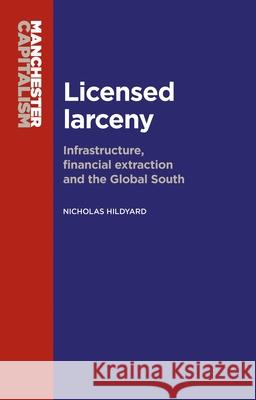Licensed larceny: Infrastructure, financial extraction and the global South » książka
Licensed larceny: Infrastructure, financial extraction and the global South
ISBN-13: 9781784994266 / Angielski / Twarda / 2016 / 144 str.
Licensed larceny: Infrastructure, financial extraction and the global South
ISBN-13: 9781784994266 / Angielski / Twarda / 2016 / 144 str.
(netto: 392,80 VAT: 5%)
Najniższa cena z 30 dni: 407,40
ok. 30 dni roboczych.
Darmowa dostawa!
In country after country, the already vast gap between the rich and poor has widened dramatically over the past thirty years. The incomes of the rich are sky-rocketing, whilst those of poorer people stagnate or plummet; and the lion's share of global wealth is increasingly concentrated in fewer and fewer hands. Inequality is not just a problem of poverty and the poor; it is as much a problem of wealth and the rich. The growing wealth gap is best viewed as a proxy for how effectively elites have constructed institutions that extract value from the rest of society. Understanding the mechanisms through which wealth is extracted upwards to the one per cent is critical if they are to be challenged. One area that is currently being reconfigured to enhance such extraction is infrastructure development. For the rich, infrastructure is not primarily about bricks and mortar but about capturing subsidies and government-backed contracts that guarantee (yes guarantee) high rates of profits. Public Private Partnerships (PPP) are a lynch pin for this extraction. Now being pushed worldwide by multilateral development banks, such as the World Bank, they have become a cornerstone for constructing multiple means of financial looting as infrastructure is transformed into an asset class. The trajectory is not only towards increased inequality: it is also profoundly undemocratic, elitist and unstable. Undemocratic because a handful of fund managers now increasingly determine what gets financed and what does not. Elitist because the facilities that would most benefit the poor do not get built, and unstable because infrastructure-as-an-asset class is a bubble that is set to burst. How have the rich got away with it? Is the growing wealth gap the result of a failure of activists to shout loudly enough against its iniquities? Or does it reflect a more fundamental problem, rooted as much in the ways that progressive activists are themselves organising as in the well-documented power of today's elites?











